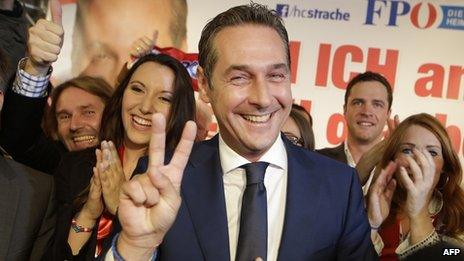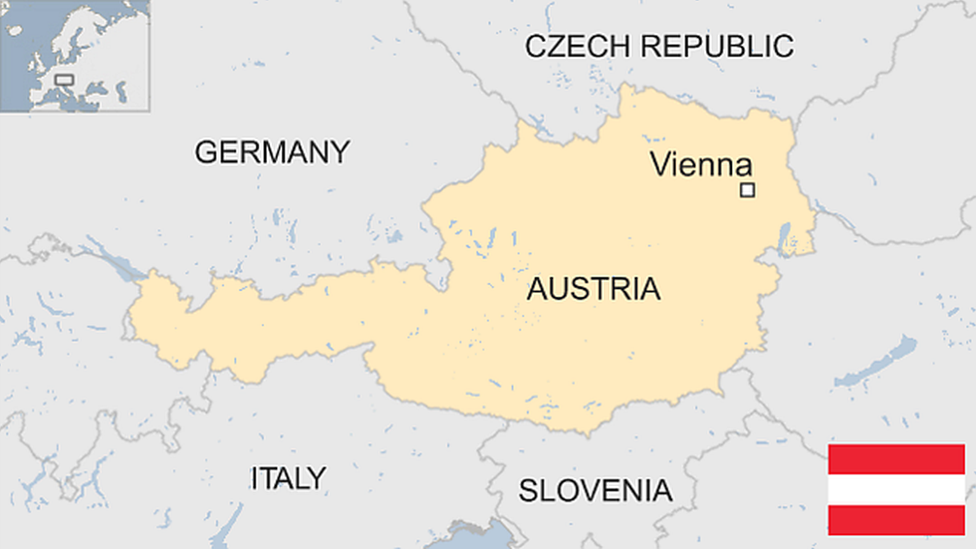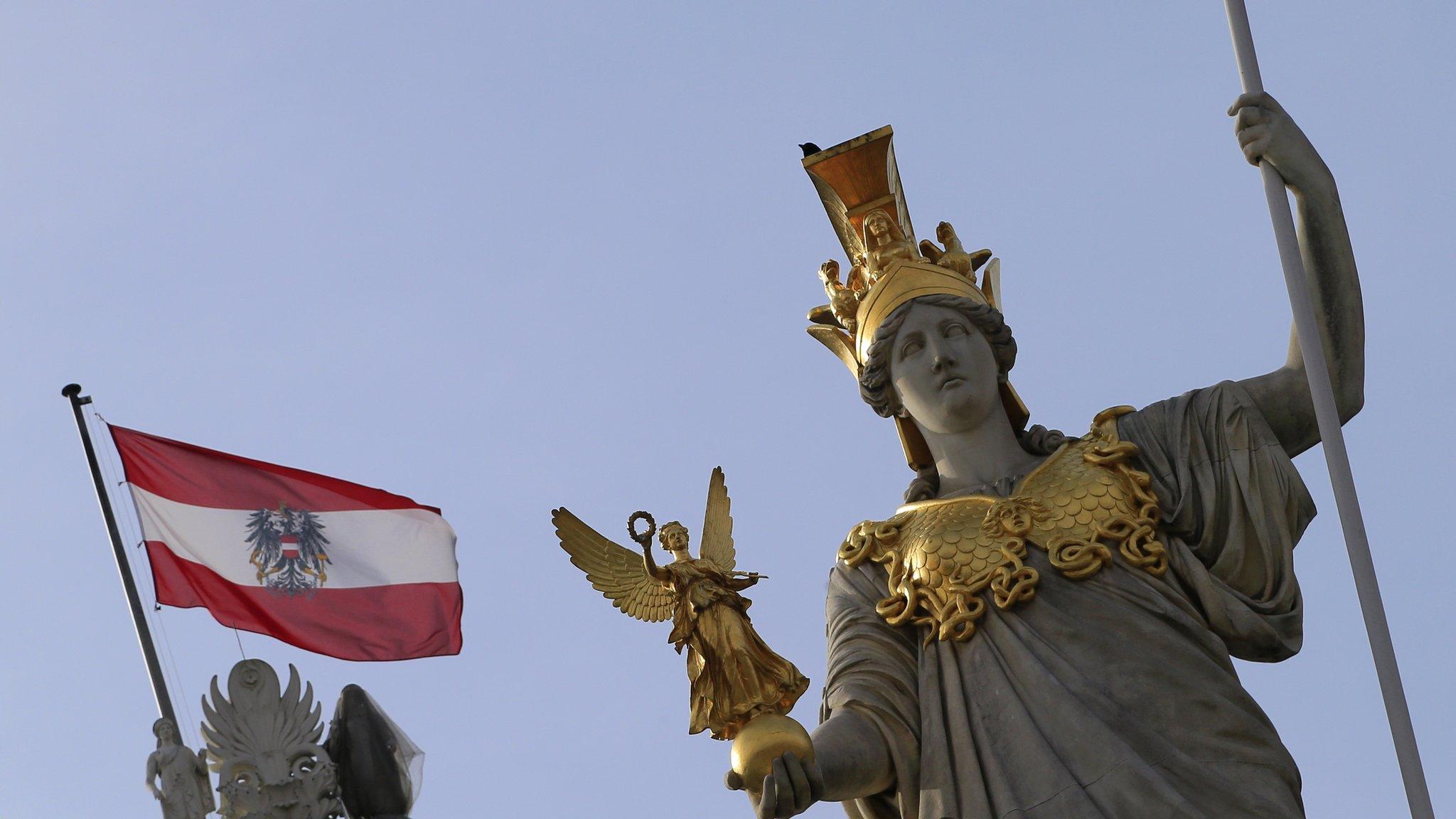Austria election: 'Grand coalition' can rule again
- Published
Social Democrat Chancellor Werner Faymann was cheered by supporters in Vienna as the results came in
Austria's two ruling parties have won enough votes for another five-year term in a "grand coalition", but it was their worst result since World War II.
There was a surge in support for the Eurosceptic right-wing Freedom Party (FPOe), which got 21.4%.
The Social Democrats (SPOe) came top with 27.1% and the conservative People's Party (OeVP) got 23.8% in Sunday's election.
The conservative leader warned that the result was a "wake-up call".
Michael Spindelegger said "we can't simply go on as before" - and he did not rule out a coalition with the FPOe.
Chancellor Werner Faymann, leader of the SPOe, said he was against any "experiments" and called for coalition talks with Mr Spindelegger's OeVP.
Swing to right
Turnout was 74.4%, which was 4.4% down on the last election in 2008.
The anti-immigration and Eurosceptic FPOe, led by Heinz-Christian Strache, added nearly four percentage points to its 2008 result, winning four new seats and bringing its total to 42.
Its 21.4% still falls short of the shock 27% the party achieved under Joerg Haider in 1999.
The SPOe lost four seats, and the OeVP lost five. They still got 99 seats in total - enough for a majority. They have ruled jointly for much of Austria's post-war history.
Austrians, with an electorate of six million, were choosing 183 deputies for the lower house of parliament. A party must cross a 4% hurdle to be represented in the chamber.

Heinz-Christian Strache's Freedom Party (FPOe) celebrated its performance
Mr Faymann appears set to remain at the head of the coalition as chancellor.
The governing parties had each claimed credit for keeping unemployment low during years of economic difficulties for the European Union.
The Social Democrats also focused on pensions, pledging a tax on "millionaires" and cuts for low earners.
Meanwhile, the OeVP campaigned for measures to free businesses from red tape, rejecting the proposed wealth tax.
Scandals and inertia
A series of scandals and perceived inertia have hit the ruling parties' popularity among the voters.
The Freedom Party appears to have benefited from this slump. The party has accused the coalition of bloating the public sector, corruption and permitting too much immigration.
The Eurosceptic Team Stronach of Austro-Canadian billionaire Frank Stronach gained a foothold in parliament, winning 5.8%. The liberal New Austria party - Neos - is also a newcomer to parliament with 4.8%.
The Greens are on 11.5%, a rise of one percentage point. In addition to their traditional environmental themes, they have sought to capitalise on a funding scandal involving the coalition.
- Published14 April 2023

- Published25 September 2013
